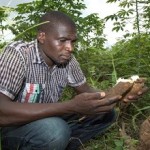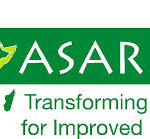In 2015, the World Bank awarded Nigeria a $100 million grant for the implementation of Nigeria’s public expenditure action plan to reform the country’s agricultural sector with assistance from IFPRI's research on the country's public expenditures in agriculture.
Partnering with the Association for Strengthening Agricultural Research in Eastern and Central Africa (ASARECA)
In collaboration with the Association for Strengthening Agricultural Research in Eastern and Central Africa (ASARECA) and other partners, IFPRI aims to spur agricultural growth in the region by increasing productivity and competitiveness.
Assuring Food and Nutrition Security in Africa by 2020
In 2004, IFPRI facilitated an all-Africa conference, bringing together more than 500 actors and stakeholders from 50 countries to deliberate on how to bring about change and action to assure food and nutrition security.
Pro-Poor Avian Influenza Risk Reduction Program
MOTIVATION Highly pathogenic avian influenza (HPAI) poses a major risk to human and animal health. After the disease spread in Asia (starting in 2003) and beyond, policymakers realized they lacked the information needed to choose biologically effective and economically efficient control measures that also protect the livelihoods of rural poor. The most widely practiced method >> Read more
Pro-Poor Avian Influenza Risk Reduction Program
IFPRI, in collaboration with the International Livestock Research Institute, worked in Vietnam, Thailand, Indonesia, Ethiopia, Nigeria, Kenya, and Ghana from 2007–11 to develop evidence-based responses to HPAI that consider the impact on, and effectiveness in, smallholder systems.
West African Agriculture and Climate Change
Maize, millet, rice, and sorghum are the major cereal crops in West Africa, yet yields from these crops are very low compared to the world average and even other regions within Africa. A changing climate will challenge production systems already under pressure to increase output to feed a growing population.


